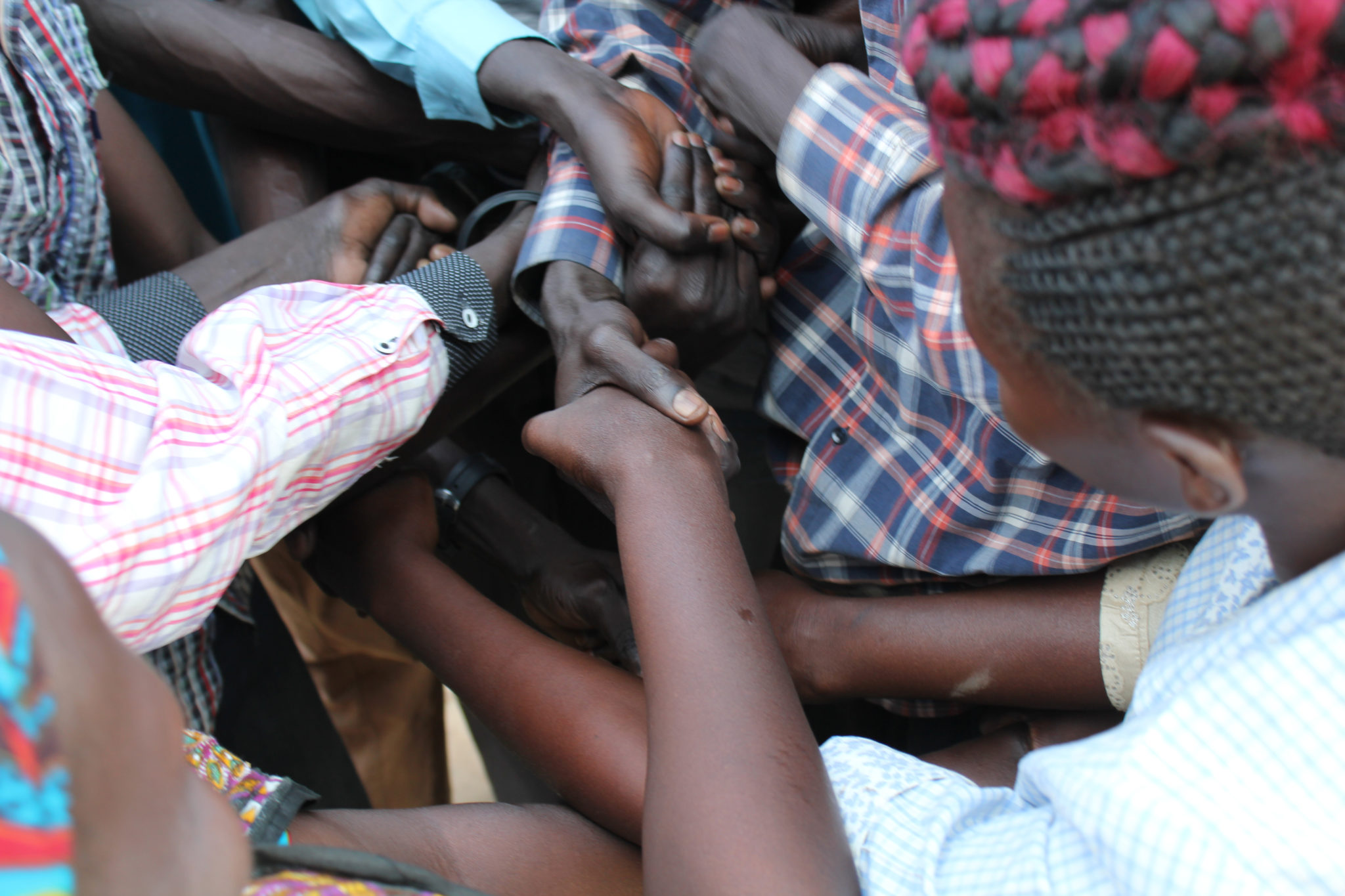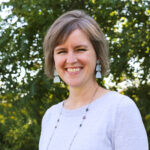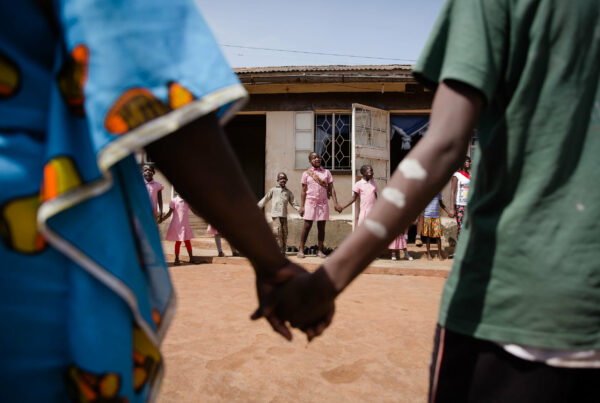This article was published in the winter 2017 issue of RCA Today, the Reformed Church in America’s denominational magazine. Some statements will reflect that.
L ast July [July 2016], ten days before Reformed Church in America (RCA) missionaries Shelvis and Nancy Smith-Mather left South Sudan for home assignment in the United States, violence broke out.
A few miles from their town, a public bus was pulled over, and people were robbed and assaulted—all of them members of the Dinka ethnic group. Two were killed.
In South Sudan, this kind of tragedy usually sets off a poisonous cycle of retaliation between Dinka and Nuer people. And, in fact, the government did begin sending forces to attack the perpetrators’ ethnic group, the Nuer. (One of the people killed was a military official.)
But in this case, a local pastor and church member began to use skills they had acquired in diplomacy and negotiation through the RECONCILE Peace Institute. And it worked.
First they spoke to family members of the bus attack victims and to military leaders about the risks of “sending more gunfire this way.” The church had already been working toward reconciliation between Dinka and Nuer people, including a worship service that brought the two sides together. Then they went to the military general and said, “We don’t need more people to be killed.”
That’s when something amazing happened: these two men were able to deescalate the situation, and there were no more retaliations.
The Smith-Mathers have hope for South Sudan because of stories like this. They have hope even though two weeks after this event, fighting broke out on the national level, bringing the world’s youngest nation to the cusp of civil war—again. Since 2011, the Smith-Mathers have worked through RCA Global Mission and the Presbyterian Church (U.S.A.) to help run RECONCILE, where they teach South Sudanese people how to build peace—how to gain those skills in diplomacy, negotiation, and conflict resolution. Thanks to their participation in RECONCILE, the two South Sudanese men were able to deescalate the situation.
RCA Today interviewed Shelvis and Nancy about South Sudan, conflict, and what we can learn from their peacebuilding work in a world that’s increasingly divided.
What does peacebuilding look like in a five-year-old country that’s been struggling with civil war?
Shelvis: It’s bringing together all the mending that needs to happen. Physical wounds— lives that are lost, people that are injured and harmed. And there are also emotional scars; those run really deep. It’s sloppy and messy and painful and overwhelming, and, many times, grace-filled.
Nancy: A lot of the current tensions that exist in the country have been there for decades. And at the same time, the peacebuilding work of the church has been happening for decades as well.
Shelvis: The RECONCILE Peace Institute brings together leaders from all over the country, from some of the places of high conflict, to work on healing themselves so they can go back and heal their communities.
These leaders come in, live together, study together, eat together, play together, from beginning to end, for three months. That might mean one day you’re asked to room with someone from that other ethnic group that has run your family out of their homes. You have to face all those assumptions, all those prejudices you have for that person. You have a person who’s a recent graduate from college, with a person who’s high ranked in the military, with a pastor, with a grandmother, with a person with a law degree. All of them are focused on peacebuilding in their communities. It’s a place for them to come together to share their faults, their perspectives, their lives, and figure out how to move forward to get the peace they all agree on.
Nancy: In order for us to truly come to a sustainable, long-term reconciliation, we need to address emotional wounds—wounds of the heart, as they call them there—so we can heal ourselves and truly reconcile with each other.
What role does the church play in conflict resolution?
Shelvis: RECONCILE’s first entry point is always the church, and it spans out from there. The church has been a persistent presence working in communities, providing aid to people, helping people.
Nancy: The church can play a neutral role in mediating different conflicts or helping to resolve past conflicts that have happened, as well as at a time the community has just experienced a tragic event, calling on the church to help them put the pieces back together.
[RECONCILE] is trying to equip leaders from those communities to do those things: to mediate conflict within their community, to help people heal from traumatic events. The more people with those skills in the community, the most sustainable those efforts will be.
Shelvis: In the midst of these conflicts, the call of the church [is] to be the embodiment of forgiveness.
There has to be a revision of how I see myself in relationship to you. If I know that I am Dinka and a part of who I am as Dinka is someone who’s been hurt many times by Nuer, then part of my definition of who I am is someone who’s opposed to you. The church does this revision: yes, you are Dinka, or yes, you are Nuer. Yes, there’s death that’s been around you. There’s brokenness that’s shaped you into who you are. But Christ has risen.
Because you’re called to be a person of the resurrection, your actions, your behaviors are calling you to something different. You have to be willing. You have to at least explore the idea of forgiving this person who’s done these horrible things to you. It’s not just about you and him or her. It’s about who you’re called to be in God.
Tensions seem to be on the rise worldwide. What can we in North America learn from the conflict in South Sudan, and the attempted resolution to this conflict?
Nancy: In South Sudan, while there’s so much fracturing in the government, the church is really seen as a place where there haven’t been those types of schisms on a larger scale. With that, there’s been a unique role the church has played, not only as a witness of unity, but a neutral presence which gives [the church] credibility to the different sides.
Shelvis: The outward violence is different [in North America and South Sudan], but the inward hurt and brokenness is really similar.
There’s still this defining of ourselves as people who have been wronged by this person or that person. The Christian faith doesn’t call us to deny who we are. It doesn’t call us to say that we’ve not been shaped. But it calls us to be people of the resurrection, just as it calls so many church folks in South Sudan to say, “We’ve been surrounded by brokenness; we’ve even been surrounded by death. But God has called us to more.”
How can we do what he’s called us to? We’re called to hear the other person and to be able to share in someone else’s experience.
Christina Tazelaar is the chief communications officer for the Reformed Church in America. You can get in touch with Christina at ctazelaar@rca.org.




